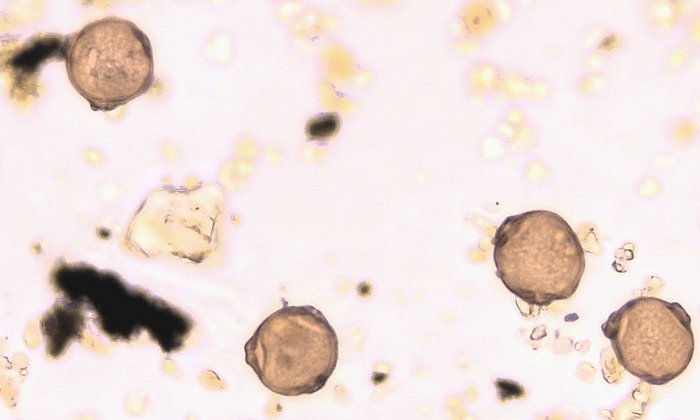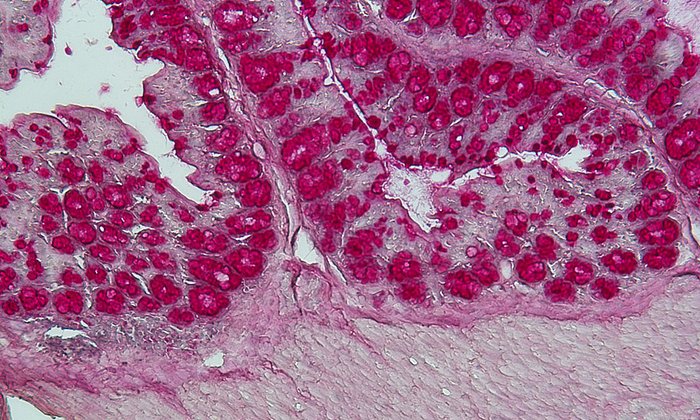Detection of allergen-specific antibodies in nasal secretions
Nasal smear as an allergy screening test

Stuffy noses, itching and fits of sneezing – 130 million people in Europe suffer from hay fever and other forms of allergic rhinitis. Until now, these conditions have typically been diagnosed using blood samples or skin prick tests. The latter method is often seen as particularly uncomfortable because the skin is exposed to various allergens and punctured with a fine needle. Many patients – especially children – even find the blood test quite unpleasant.
Diagnosis with biochip technology
Claudia Traidl-Hoffmann, a professor of environmental medicine at TUM and the director of the Institute of Environmental Medicine at the Helmholtz Zentrum München, has now tested a new diagnostic method for allergic rhinitis with her team. The scientists studied nasal smears using a method originally developed for blood samples: With a recent development in biochip technology, practitioners have been able for some time now to measure antibody concentrations for 112 different allergens with a single small blood sample.
Prof. Traidl-Hoffmann's team used this molecular diagnostics technology to measure concentrations of immunoglobulin E (IgE) antibodies in the blood and nasal secretions of test subjects. These antibodies play a role in certain allergic responses. The researchers studied individuals with and without sensitization to the most common airborne allergens, including dust mite castings, grass pollen and the pollen of birch, hazelnut and alder trees.
Results for a range of allergens
For the same tests, the blood and nasal smears yielded similar results: They detected identical allergic sensitization patterns, i.e. the same sets of substances for which the body had developed an immune response. This was the case for all airborne allergens investigated. Previous studies had already demonstrated a link between the detection of allergy antibodies in the blood and in nasal secretions for certain aeroallergens. The researchers have now confirmed this correlation for a wide range of such allergens.
Gentle method with potential
"A big advantage of allergy diagnostics with a nasal smear is that it is a good option for small children as compared to blood samples or skin prick testing. For that age group, a hyposensitization therapy is important because allergic rhinitis can develop into allergic asthma," says Prof. Claudia Traidl-Hoffmann. PD Dr. Stefanie Gilles adds: "We also believe that, with nasal smears, IgE antibodies specific to certain allergies can be detected that cannot be measured in a blood sample. We now need to do further studies to explore that hypothesis."
Gökkaya, M.; Schwierzeck, V.; Thölken, K.; Knoch, S.; Gerstlauer, M; Hammel, G.; Traidl-Hoffmann, C.; Gilles, S. Nasal specific IgE correlates to serum specific IgE: First steps towards nasal molecular allergy diagnostic. Allergy. 2020 Feb 13. DOI: 10.1111/all.14228.
Prof. Claudia Traidl-Hoffmann conducts research in environmental medicine with her team at the University Center for Health Sciences at the Klinikum Augsburg (UNIKA-T), a research association, and at the Augsburg University Outpatient Clinic for Environmental Medicine.
Technical University of Munich
Corporate Communications Center
- Lisa Pietrzyk
- lisa.pietrzyk@tum.de
- presse@tum.de
- Teamwebsite
Contacts to this article:
Prof. Dr. Claudia Traidl-Hoffmann
Technichal University of Munich
Chair of Environmental Medicine
phone: 0049 821 - 598 6420
c.traidl-hoffmann@tum.de
PD Dr. Stefanie Gilles
Technichal University of Munich
Chair of Environmental Medicine
phone: 0049 821 - 598 6412
stefanie.gilles@tum.de


